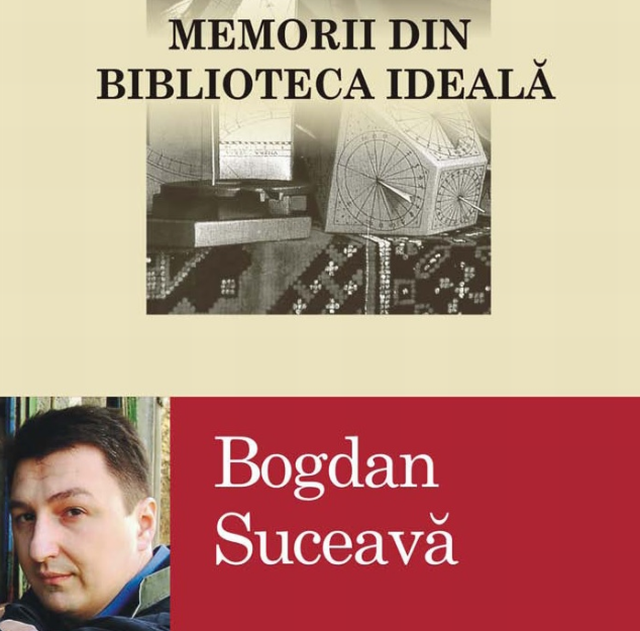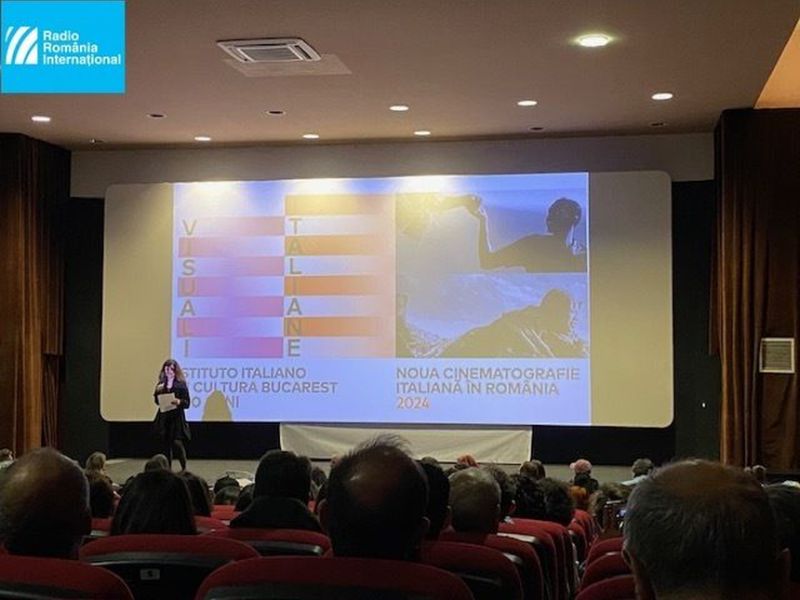Memoirs from the Ideal Library
A book on how mathematics helps one on the path to self-development.

Corina Sabău, 18.01.2014, 11:57
“Memoirs from the Ideal Library”, a book by prose writer and mathematician Bogdan Suceava, a professor with the California State University at Fullerton, includes essays focusing on the author’s encounter with mathematics, an encounter that proved key to the author’s subsequent development. The volume was brought out by Polirom Publishers. It is the first piece of writing of this kind Suceava has dedicated to his profession. “I thought of myself as being a problem solver above anything else. It was all clear to me that the most conspicuous expression of intelligence should be the identification of an optimal, specific solution, whether we speak about literature or mathematics”. We asked the author of the novels “The Night Someone Died for You” and “Coming from an Off-Key Time” what a “specific” solution meant in literature.
“If writing a novel is what we have in mind, the solution begins with the narrator’s voice, with the selection of the moment the whole story should come to an end, preparing the reader for a minutely thought-out ending. All that has to do with the literary solution and things can get really complicated, if you get more than one character involved. This time, I had the opportunity of showing how certain things we learn from mathematics end up helping us in other areas of our cultural life as well, mostly in literature.”
Book-mediated encounters with the ideas of long-gone scientists (among whom Huygens, Newton, Meusnier, Euler or Sophie Germain), but also direct encounters with personalities who had a strong bearing on the author’s intellectual progress make the “Memories from the Ideal Library” a volume addressing a wide readership, not just maths-minded people. Also presented in the book is the Bucharest school of geometry, which, the author argues, had developed a very thorough academic programme for more than a century.
It is to this school that Bogdan Suceava owes the early years of his academic background. Gh. Titeica, Dan Barbilian, Nicolae Teodorescu, Solomon Marcus, Ieronim Mihaila, Basarab Nicolescu, are but a few of the Romanian mathematicians to whom Bogdan Suceava pays tribute in his memoirs. “If the purebred mathematicians’ dream is to demonstrate theorems bearing their names, my dream was to be able to fully understand not only certain ideas in mathematics, but also where those ideas stemmed from, their historical affiliation, their progress in time”, Bogdan Suceva writes. Yet what role do mathematicians play in a speed-driven and dismissive world?
“They remind everyone that there are corners in the universe where logic is put to good use. Mathematicians are needed since in this world, we need people capable of avoiding ethical compromises, people who are mindful and lucid, whenever all the others find themselves adrift. People whose questions are so difficult that genuinely authentic intellectual effort is needed to lead you up to a clearly specific answer, where categories are clearly delineated. And in Romania, over the last two decades, everything pretty much boils down to entertainment and frivolity. Yet we can reconsider our past, we can still see what we can still salvage from the public sphere.”
Bogdan Suceava got his BA in Mathematics from the University of Bucharest, as well as the Master’s Degree. He earned his PhD from the Michigan State University, East Lansing, in 2002. Life can be extremely difficult for researchers in Eastern Europe, even after a life devoted to study, Bogdan Suceava thinks. But that can be a challenge for Western researchers as well, some of them being employed on a fixed-term work contract.
“For me it got easier, to the extent that I learned what I had to do. Everything I teach in my course can be found in my book. And that’s what makes the book’s richest autobiographical part. Yet in the book I mentioned a limited number of geometry topics I was in contact with, thanks to the faculty at the University of Bucharest, and later at Michigan State University. To that effect, it is a very subjective book. A history of geometry, from a very personal perspective.”
The volume ”Memoirs from the Ideal Library” brought out as part of the Polirom Publishers’ “Eco-graphies” collection, is also available as an e-book.





























